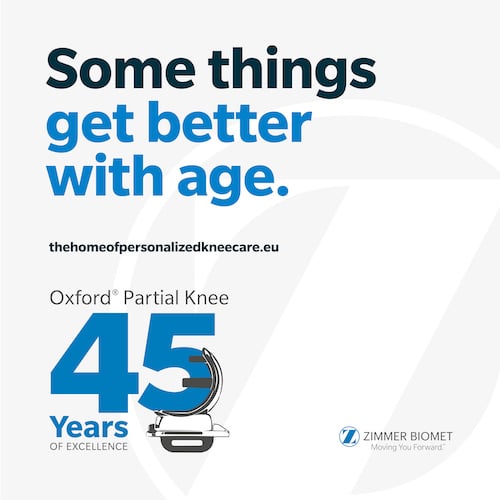Several studies have shown that partial knee replacement (PKR) is associated with a faster recovery and fewer complications than total knee replacement (TKR).1 It has been suggested, however, that these findings may reflect differences in pre-operative comorbidities between PKR and TKR patients.1 To control for any potential differences in comorbidities, this recent study examined the differences in length of stay (LoS), and 90-day post-op readmission and complication rates between a matched cohort of PKR and TKR patients.1
The cohort of 2,786 PKR and 7,708 TKR were propensity matched on 17 pre-operative characteristics and exact year of surgery.1 All procedures were performed between 2010 and 2017 across nine fast-track orthopaedic centres in Denmark.1
The results showed that:
- More PKR patients were discharged on the day of surgery than TKR patients (21.1% Vs 0.5%)1
- LoS was shorter for PKR patients (1.17 days Vs 2.24 days)1
- There was no difference in re-admission rates between PKR and TKR1
- The overall rate of surgical or medical complications were similar for both groups1
- The incidence of periprosthetic joint infection was lower in the PKR group (odds-ratio 0.50)1
- There were fewer re-operations in the PKR group (odds-ratio 0.40)1
- Non-septic revisions were more common in PKR patients (odds-ration 2.5)1

